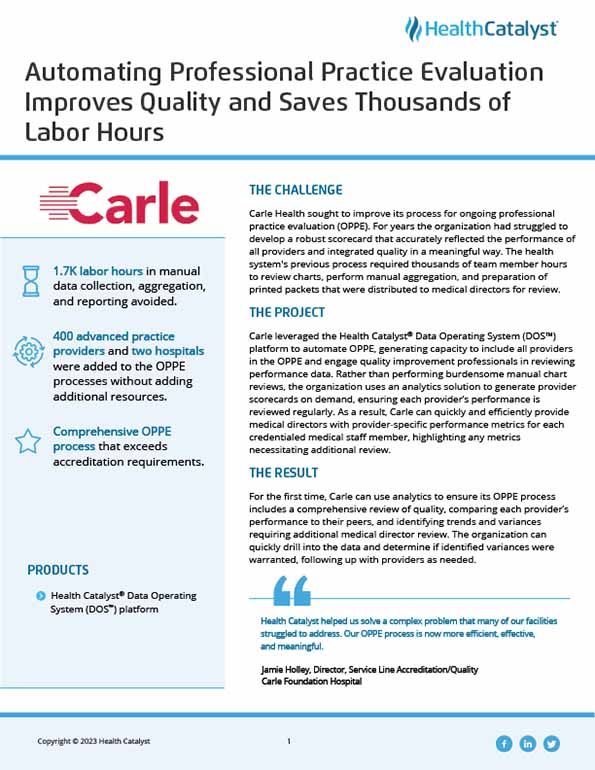Carle Health sought to improve its process for ongoing professional practice evaluation (OPPE). The organization leveraged the Health Catalyst® Data Operating System (DOS™) platform to automate OPPE, allowing Carle to generate provider scorecards quickly and efficiently on demand and review providers performance regularly.
Carle Health sought to improve its process for ongoing professional practice evaluation (OPPE). For years the organization had struggled to develop a robust scorecard that accurately reflected the performance of all providers and integrated quality in a meaningful way. The health system's previous process required thousands of team member hours to review charts, perform manual aggregation, and preparation of printed packets that were distributed to medical directors for review.
Carle leveraged the Health Catalyst® Data Operating System (DOS™) platform to automate OPPE, generating capacity to include all providers in the OPPE and engage quality improvement professionals in reviewing performance data. Rather than performing burdensome manual chart reviews, the organization uses an analytics solution to generate provider scorecards on demand, ensuring each provider’s performance is reviewed regularly. As a result, Carle can quickly and efficiently provide medical directors with provider-specific performance metrics for each credentialed medical staff member, highlighting any metrics necessitating additional review.
For the first time, Carle can use analytics to ensure its OPPE process includes a comprehensive review of quality, comparing each provider’s performance to their peers, and identifying trends and variances requiring additional medical director review. The organization can quickly drill into the data and determine if identified variances were warranted, following up with providers as needed.
"Health Catalyst helped us solve a complex problem that many of our facilities struggled to address. Our OPPE process is now more efficient, effective, and meaningful."
- Jamie Holley, Director, Service Line Accreditation/Quality, Carle Foundation Hospital


